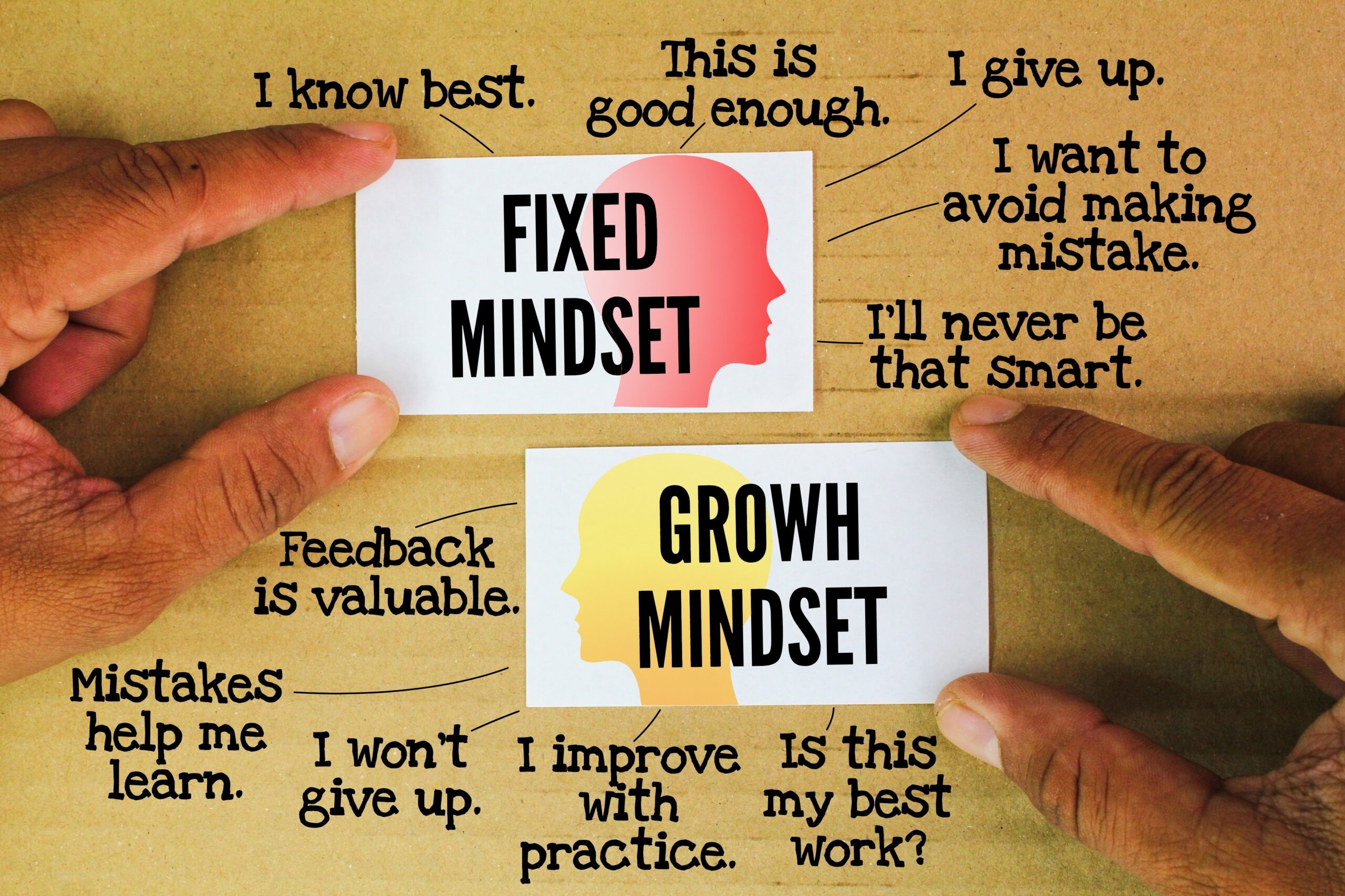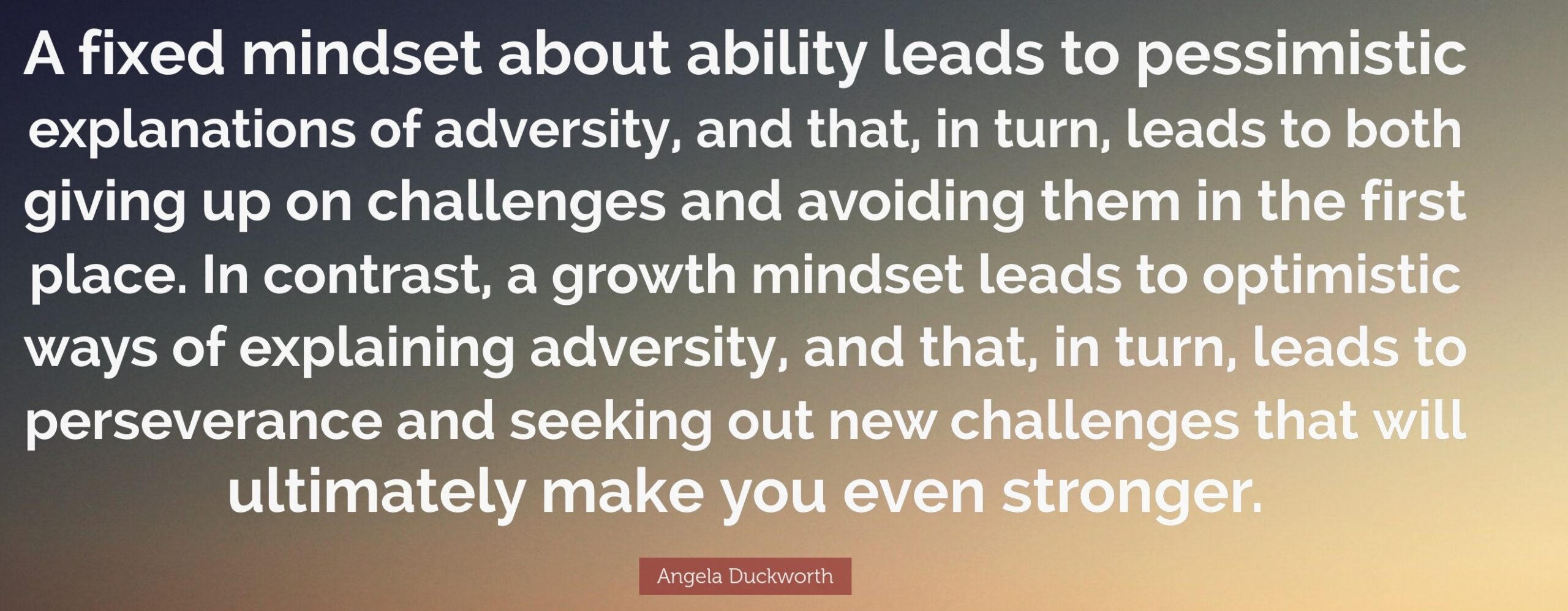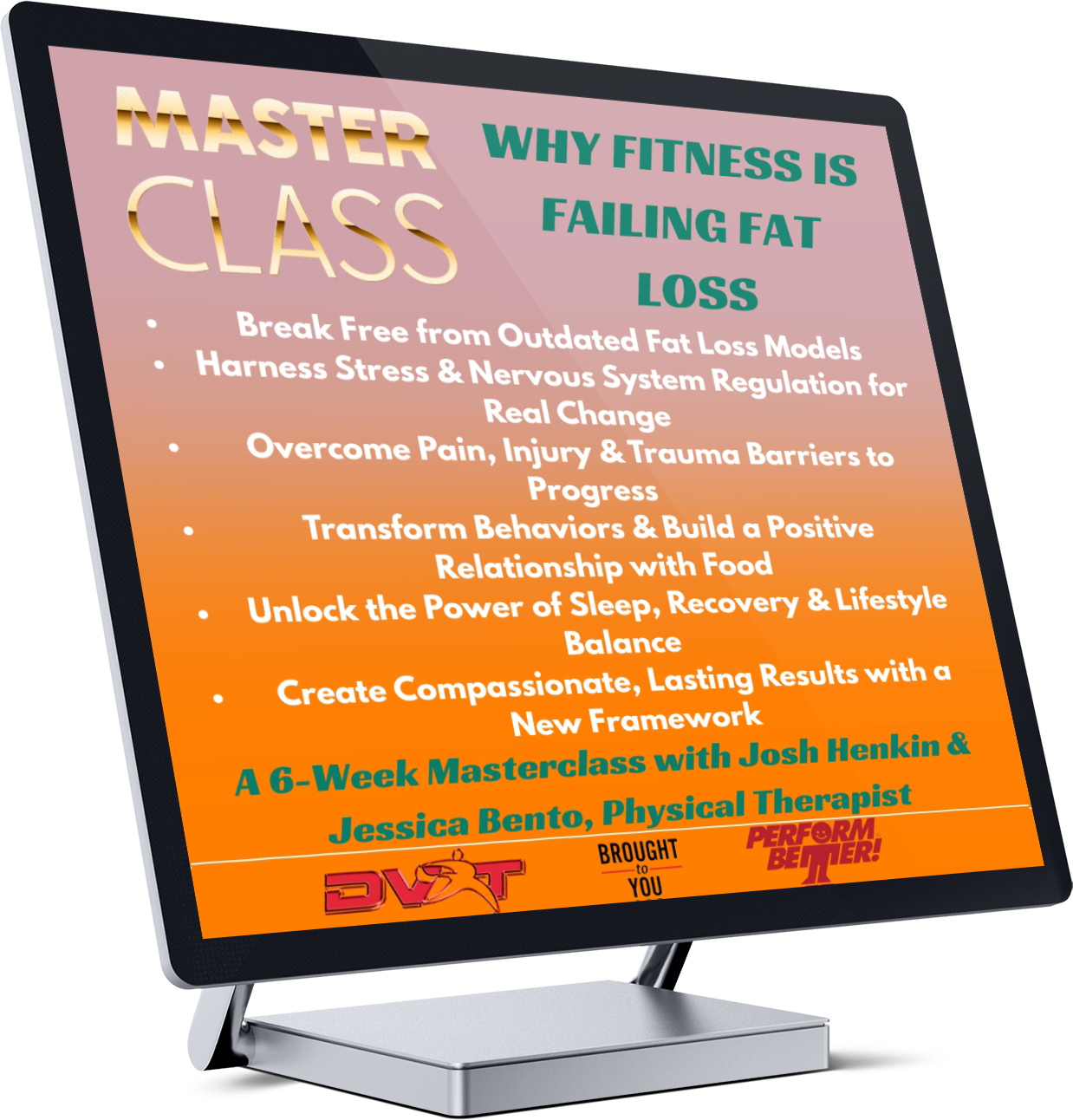HOW To Get Your Mind Right For Fat Loss!
2025-09-22

Over my 30 years of coaching, I’ve seen it countless times: two clients start the same program with the same enthusiasm, yet weeks later, one is still showing up consistently while the other has fallen off track.
What’s the difference?
Often, it isn’t genetics or even willpower, the truth is that is has A LOT more to do with mindset. People often talk about getting “your mind right”, but that is vague and often doesn’t address the true evidence aspects of mindset. Specifically, it’s whether someone approaches their fitness and nutrition journey with a growth mindset.

Fixed vs. Growth Mindset
Psychologist Carol Dweck first popularized the concept of mindset in her research on learning and achievement. A fixed mindset is the belief that abilities, like intelligence, strength, or discipline, are innate and largely unchangeable. In contrast, a growth mindset reflects the belief that skills and abilities can be developed through effort, practice, and persistence (Dweck, 2006).
When it comes to fitness and nutrition, this distinction is critical. Clients with a fixed mindset often view setbacks as evidence that they “just aren’t cut out for it.” Missing a workout, struggling with a new exercise, or slipping on their diet becomes proof of inadequacy. On the other hand, clients with a growth mindset see the same setbacks as part of the process challenges that help them learn, adapt, and improve over time.
I know, I know, you are thinking or you may know people that believe, “well, that is just the way I am!”
Funny enough, research doesn’t support this, as research psychologist Angela Duckworth explains, “no trait is completely unchangeable.” In fact, she goes on to explain that both traits tend to change as we age, but also the growth mindset is key to developing more grit which we all believe helps us achieve more.

Growth Mindset and Exercise Adherence
Research consistently shows that people with a growth mindset are more resilient and persistent in the face of challenges. In health behavior studies, those who believe they can change are more likely to engage in regular exercise and sustain it over time (Burnette et al., 2013, Personality and Social Psychology Bulletin).
There are some key points that I think would make any fitness coach realize that learning and coaching the growth mindset with clients is key to their ability to be successful…
- Stronger growth mindsets indirectly predicted greater weight loss achievement through positive offset expectations and subsequent increased program engagement. (PMID: 38312005)
- Mindset-based intervention can be an independent or complementary treatment for weight loss, reducing BMI, and emotional overeating in people with obesity.
- Growth mindset is a predictor of increased physical activity that led to decreased BMI and cardiovascular disease (PMID: 31984820)
In my own coaching, I see this play out when teaching clients new movement patterns. Someone with a fixed mindset might say, “I’m terrible at squats, I’ll never get this.” Someone with a growth mindset reframes it: “I can’t do a squat perfectly yet, but with practice, I’ll get better.” That single word, yet, makes all the difference in whether they stick with the process long enough to see results.
Growth Mindset and Nutrition
The same principle applies to nutrition. Many clients come in expecting perfection: zero slip-ups, flawless meal prep, no cravings. But perfection is unsustainable, and when life happens, because it always does, those with a fixed mindset often give up altogether. I would see this all the time around birthdays or holidays where people felt like such failures for having foods that weren’t on their nutritional program.
Research shows that adopting a growth mindset about willpower and self-control helps people recover from dietary lapses more effectively and sustain long-term changes (Job et al., 2010, Psychological Science). Instead of labeling a cookie as “failure,” a growth mindset client learns from the situation: What triggered the craving? How can we plan for it next time? Every setback becomes a chance to strengthen the habit muscle.
Why This Matters for Results
Fitness results don’t come overnight. Whether the goal is fat loss, muscle gain, or improved performance, consistency is the single most important predictor of success. And consistency is far easier to maintain when clients believe their effort matters.
A study in the Journal of Sport and Exercise Psychology found that athletes with growth-oriented beliefs were more likely to persist in training, even when progress was slow (Robins & Pals, 2002). This is exactly what I want for my clients: the ability to push through the inevitable plateaus and challenges with the confidence that their efforts will pay off.
How YOU Can Foster Growth Mindset
The good news is that mindset isn’t fixed—it can be coached. Here are a few strategies I use to help clients develop a growth mindset:
-
Praise effort, not talent. Instead of saying, “You’re so strong,” I’ll say, “I’m proud of how hard you worked on that set.” This emphasizes controllable factors.
-
Reframe mistakes. A missed workout isn’t failure; it’s feedback. We discuss what got in the way and how to adjust for next time.
-
Celebrate progress in small chunks. Breaking goals into manageable steps helps clients see improvement regularly, which reinforces the belief that change is possible.
-
Use “yet.” When clients say, “I can’t do this,” I encourage them to add “yet” to the end of the sentence. That small shift opens the door to growth.
Learn SOOO much more about mindset and MORE evidence based strategies for increasing exercise and nutritional success at our upcoming FREE Fat Loss Webinar HERE and if you want to jump on a special 25% on our “Why Fitness Is Failing Fat Loss” Masterclass, use code “dvrt25” HERE for a VERY Limited time

© 2026 Ultimate Sandbag Training. Site by Jennifer Web Design.






